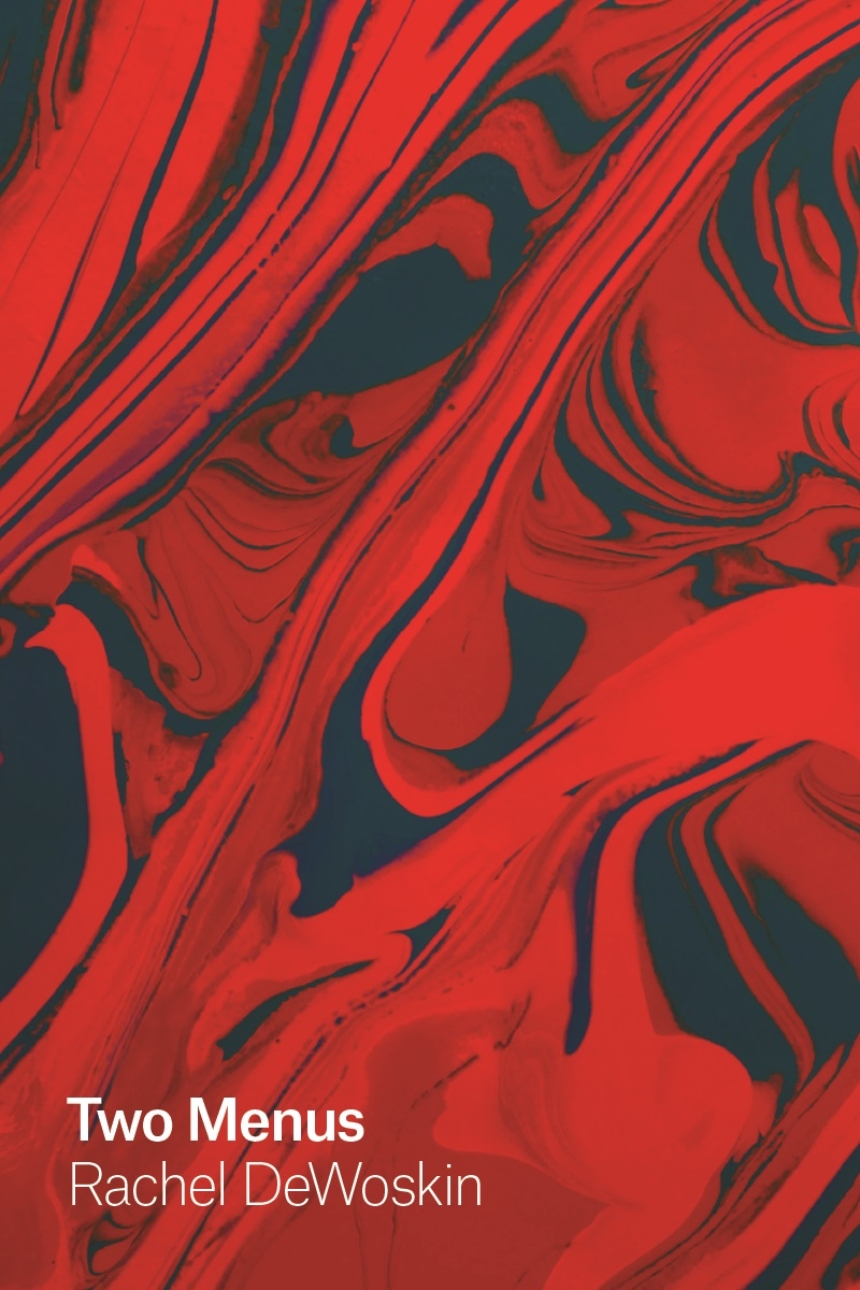Two Menus
There are two menus in a Beijing restaurant, Rachel DeWoskin writes in the title poem, “the first of excess, / second, scarcity.” DeWoskin invites us into moments shaped by dualities, into spaces bordered by the language of her family (English) and that of her new country (Chinese), as well as the liminal spaces between youth and adulthood, safety and danger, humor and sorrow. This collection works by building and demolishing boundaries and binaries, sliding between their edges in movements that take us from the familiar to the strange and put us face-to-face with our assumptions and confusions. Through these complex and interwoven poems, we see how a self is never singular. Rather, it is made up of shifting—and sometimes colliding—parts. DeWoskin crosses back and forth, across languages and nations, between the divided parts in each of us, tracing overlaps and divergences. The limits and triumphs of translation, the slipperiness of relationships, and movements through land and language rise and fall together.
The poems in Two Menus offer insights into the layers of what it means to be human, to reconcile living as multiple selves. DeWoskin dives into the uncertain spaces, showing us how a life lived between walls is murky, strange, and immensely human. These poems ask us how to communicate across the boundaries that threaten to divide us, to measure and close the distance between who we are, were, and want to be.
The poems in Two Menus offer insights into the layers of what it means to be human, to reconcile living as multiple selves. DeWoskin dives into the uncertain spaces, showing us how a life lived between walls is murky, strange, and immensely human. These poems ask us how to communicate across the boundaries that threaten to divide us, to measure and close the distance between who we are, were, and want to be.
Reviews
Table of Contents
Acknowledgments
The Blind Massage Parlor
The Caretaker’s Daughter
Love Poem from South China
Neighborhood Kids
Two Menus
Articulation
Chinese Highway
American Highway
Four Years of Winter
Public Relations, Beijing
Extreme Sports
Honeymoon
Foreigners
Seafood
Housekeeping
Night Swimming
Sex Poem
Girls at 1001 Nights
Belligerence
Straight Up
Joint Venture
I was dancing when I heard
Your Wife
Wake Up
Reticence School
My Grandfather’s Wives
Cardiac Breakfast
Prison Questions
Stampede
Driving Lesson, 1984
Dialysis
Report Cards of the Not Quite Dead
Without
Horse Fair
You Wrote Your Own Obituary
Dear Geryon
Dear Alice
Parting at Changgan
Power of the Powerless
From Your Mama at First
Next Up
Imagining
Once Conscious
My Mother Comes Back to Me
Too
